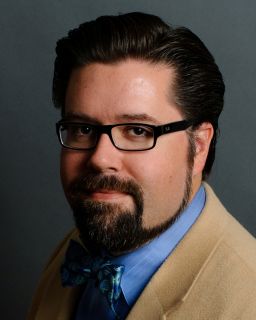Editor’s Note: Ford Vox, M.D., is a physician and journalist based in Atlanta. He is a contributing writer for Bloomberg View, focusing on medical practice, health care policy and medical science. Follow him on Twitter. The opinions expressed in this commentary are solely those of the author.
Story highlights
Ford Vox: Some parents have been forgoing measles vaccines for kids. Scientists need to better understand why people reject science
He says experts now compete with Internet charlatans and misinformation. Doctors must now rebuild doctor-patient bond
About a third of American parents harbor some degree of “vaccine hesitancy” that leads them to resist getting recommended vaccines. It’s also true that nearly a third of Americans think the evidence supporting climate change is shaky.

Both these beliefs can be very dangerous. And those of us who make and purvey science need to better understand why people distrust and reject scientific authority in this country if we’re to combat it. The Disneyland measles outbreak has now spread to 14 states, and physicians have not been able to raise their voices high enough above the misinformed din to head off the suffering, disability and death that could result.
There’s not much we can do about the small core of people who oppose vaccines based on ideology: They have been with us since Edward Jenner first introduced his smallpox vaccine in 1798. But we have a better shot with the larger and more rational border zone of the vaccine hesitant who may base their concerns on genuine cases of vaccine harm, such as the very small but accepted link between influenza vaccination and a temporary paralysis called Guillain-Barré Syndrome.
Part of the problem is that Americans see their government issuing mixed messages on the value of vaccination. Even in the midst of the current outbreak, and just as President Obama was imploring parents to vaccinate their children, New Jersey governor and likely presidential contender Chris Christie muddied the waters by unhelpfully asserting that parents should be given some leeway on whether to vaccinate.
I’ll note here this is the same governor who famously erred in quarantining a returning Ebola aid worker who showed no signs of the disease, so hopefully we’ll take his public health pronouncements in the proper context.
Whether the issue is climate change, Ebola, or vaccine-preventable diseases like measles, each of these threats comes with a corps of true experts who must compete for the public’s attention and trust with a set of vocal charlatans, conspiracy theorists and even politicians. In the case of measles, a breakdown of the patient-doctor relationship is to blame. The Internet has helped erode the old paternalistic relationship just as it has diminished all authority figures, while simultaneously welcoming fringe beliefs into the mainstream.
Parents: What is your message to parents who don’t vaccinate their kids?
The Internet has brought down to earth the rarefied medical “priesthood” by democratizing access to its previously shrouded holy texts of medical science. At the same time, we doctors have injured our standing through decades of serving as willing cogs in a ballooning and inefficient medical industrial complex that took its customer base for granted. The teetering medical system has come crashing down in a conflagration of national debate about access, fair pricing and information sharing.
We have witnessed the dawn of the “empowered patient,” whose self-generated and self-controlled data now offers the potential for enormous efficiency gains.
Still, we know that cultivating a strong patient-doctor relationship is the most successful method of reversing vaccine opposition. But doctors can no longer dictate to their patients. It’s not an option.
The new role we doctors play, after all the dust is settled, is entirely built on trust. We are the expert consultant to whom you bring the information you have generated from your own body and your own research. We help you navigate your ideas and worries, and craft the concise guidance you need. At the same time we cannot ultimately be your concierge; we stand on the ground between our best understanding of science and its application. Navigating that shifting territory requires winning your trust.
It’s no coincidence that the golden age of vaccine acceptance in the mid-20th century corresponded with some of our most fundamental medical advances and peak prestige in the medical profession. I don’t think we’ll ever be there again. You’ve earned the right to question your doctor, and you may indeed bring information to the table that your doctor doesn’t have.
If we can carve out a system where your doctor is granted the time to truly understand you, while at the same time allowing your doctor to treat you appropriately in the border zone between our limited science and its limitless application, we’ll build up the trust we need.
If we’ve done our job right, you’ll seek out the insights we’ve earned from treating many challenging cases over many years. And we’ll know we’ve succeeded in our new relationship when you let us vaccinate your children.
Read CNNOpinion’s new Flipboard magazine.






